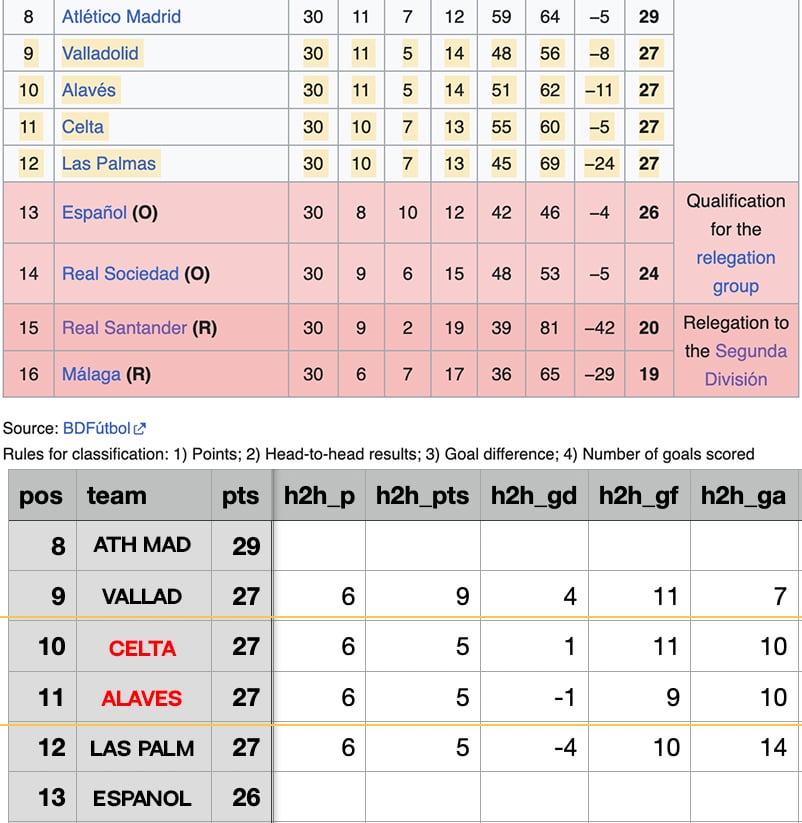If you often watch soccer games, you may have heard of the term “La Liga”.La Liga is the highest level of soccer league in Spain, and there are a lot of exciting matches every year.Today we will talk about how the La Liga calculates points and rankings, in fact, these rules are not complicated, just listen to me slowly, you will understand.
1. How are points calculated?
In La Liga, each team has to play many matches in a season.The result of each game will affect their points:

Whichever team scores more points throughout the season is at the top.It’s like taking a test. The team with the highest score gets the best grade and is naturally ranked higher.
2. What if the scores are the same?
Sometimes, there will be two or more teams with the same total score.This is when you need to use some other ways to decide who is ranked in front.Here are a few common ways to compare:
If none of the above methods can be separated, then there is one last trick – extra game.However, this is rare and usually only happens when there is a fight for the title or relegation.
3. How are Champions League and UEFA Cup qualifications distributed?
Playing well in La Liga doesn’t just lead to trophies, it also allows you to represent your country in Europe.Specifically:
4. What happens with relegation?
There are promotions and relegations.There are only 20 teams in La Liga, and at the end of each season, the last three teams** with the fewest points will be relegated to the next level of the league, which is La Liga 2.They have to work hard the following year to get back into La Liga.
5. There are a few more minor details
Although the rules of La Liga are a bit complicated, the logic is very clear.As long as you remember a few key points: add points for wins, compare total points, look at the win/loss ratio, and then compare goal difference and goals scored, you’ll basically be able to understand why a certain team is ranked in this position.Next time you watch a game, try to analyze the standings yourself, and maybe you’ll find more fun!
